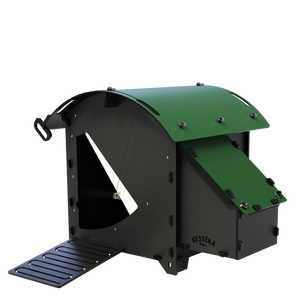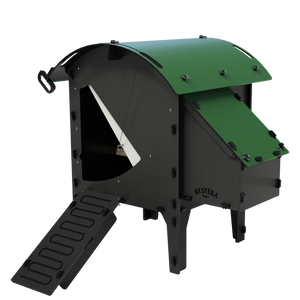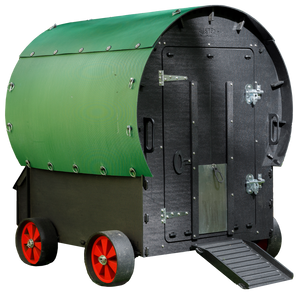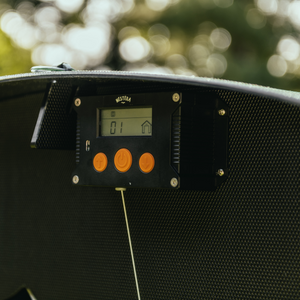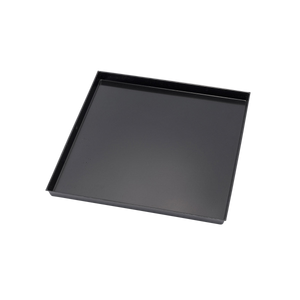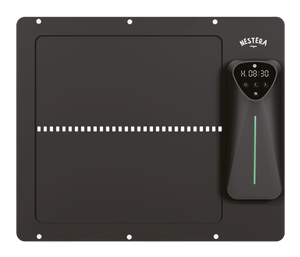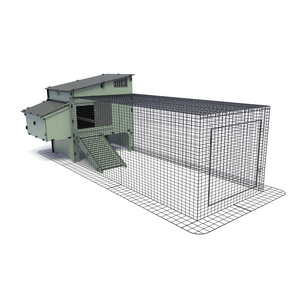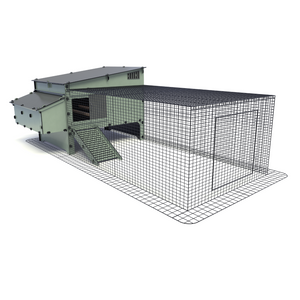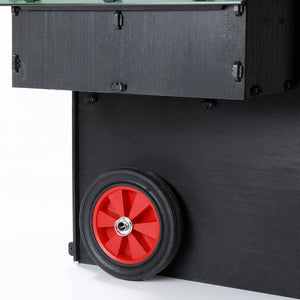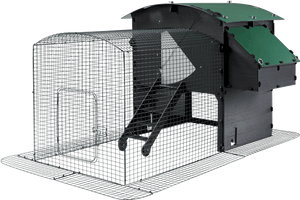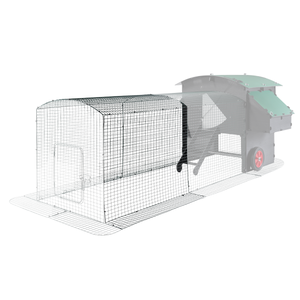Many people keep hens to become more self-sufficient, but if their feed comes from a store, is it truly self-sufficient? While most flocks consume commercial layers' mash or pellets, there are ways to supplement or replace store-bought feed with homegrown options. Not only does this reduce costs, but it also provides variety and nutrition that chickens love.
What is a good alternative food for chickens
Looking to boost your flock’s health and egg production? Here are some top alternative chicken feeds and their benefits:
Grains, Seeds & Legumes
Grains, seeds, and legumes form the bulk of commercial poultry feed. They are affordable, store well, and can be grown in most climates. Sprouting grains, seeds, and legumes unlocks additional nutrients, making them easier to digest.
Best types of homemade chicken feed
Sprout Fodder for Chickens
A sprouted fodder system is a cost-effective way to enhance poultry nutrition.

1. Choose a Grain – Barley, wheatgrass, oats, and legumes like peas and beans work well.
2. Soak – Soak grains in cool water for at least 12 hours.
3. Drain & Spread – Spread grains no deeper than 1/2 inch in shallow trays with drainage holes.
4. Provide Light & Water – Keep in a well-lit area (60-75°F) and water multiple times daily.
5. Harvest in 6-7 Days – Once sprouts reach 6 inches, they are ready to feed.
A 2-pound batch of barley produces 12-15 pounds (5-7 kg) of fodder, offering great value for money. Rotational tray planting ensures a daily supply of fresh fodder. If your chickens have limited access to grass, sprouted fodder is a fantastic alternative for achieving darker, healthier yolks.
Feeding Dry & Soaked Seeds

Seeds can be fed whole, rolled, or ground, but soaking enhances digestion and hydration. Mixing soaked seeds into a porridge with regular feed ensures they eat everything provided.
This makes it easy to create bulk chicken feed tailored to your flock’s needs. By preparing larger batches of soaked seed porridge, you can stretch your regular feed further while boosting its nutritional value — a cost-effective and efficient option for larger flocks or anyone looking to optimize their feeding routine. Plus, it’s a great way to incorporate high-protein or organic grains to support better health and egg production.
How to Ferment Chicken Feed
-
Choose your feed: Use your regular layer pellets, crumble, or whole grains to ferment chicken feed.
-
Add feed to a container: Fill a non-metal container (like a bucket or glass jar) about ⅓ full to allow room for expansion.
-
Add water: Pour in dechlorinated or filtered water until the feed is completely submerged by at least an inch.
-
Stir and cover: Stir well to eliminate dry spots. Loosely cover with a lid or towel to allow gases to escape.
-
Let it ferment: Place the container in a warm area and let it sit for 2–3 days, stirring once daily. You’ll see bubbles — that’s a good sign!
-
Check consistency: When it has a sour, yeasty smell and a slightly mushy texture, your ferment chicken feed is ready.
-
Drain and serve: Scoop out what you need, drain off excess water, and feed it to your flock. Store leftovers in the fridge or keep the process going with daily top-ups.
Fermenting chicken feed boosts digestibility, enhances gut health, and can even improve egg quality — all while saving you money!
Safe Grains, Seeds & Legumes for Chickens
Grains: Barley, wheat, oats, quinoa, millet, rye, spelt, rice, corn
Seeds: Sunflower, pumpkin, flax, hemp, sesame, chia, sorghum
Legumes: Lentils, chickpeas, peas, mung beans, soybeans, kidney beans
Chickens love fresh produce, making homegrown fruits, veggies, and herbs a great supplement. In the UK, feeding kitchen scraps is illegal due to disease control laws, but in many other countries, rules are more relaxed.
Safe Fruits, Vegetables & Herbs
Fruits: Berries, melons, apples, pears, bananas, pineapples, grapes, papayas, cherries, kiwis
Vegetables: Carrots, beets, squash, courgettes, cucumbers, brassicas (broccoli, kale, cabbage)
Herbs: Basil, oregano, thyme, sage, parsley, mint, dill, calendula, clover
To make feeding more engaging, hang veggies in bunches, string them as an edible garland, or place them in a mesh feeder to keep them clean.
Insects, Meat & Natural Proteins

Chickens are natural omnivores. Free-range birds eagerly consume worms, insects, and even small rodents. However, feeding meat is restricted in the UK due to disease concerns.
Black soldier fly larvae (BSL) and mealworms provide excellent protein and calcium. In many European countries, surplus food is now being fed to larvae to produce sustainable animal feed.
An easy chicken feed recipe: Quick Protein-Packed Chicken Mash
Ingredients (for 4–6 chickens):
-
1 cup barley (energy & fiber)
-
½ cup lentils (high protein)
-
¼ cup sunflower seeds (healthy fats)
-
1 grated carrot (vitamin A)
-
A handful of chopped kale (calcium & antioxidants)
-
½ chopped apple or berries (natural vitamins)
-
Optional: pinch of parsley or mint (aids digestion)
Steps:
-
Soak barley and lentils overnight, then drain.
-
Mix all ingredients into a moist mash.
-
Serve fresh as a healthy, protein-rich treat.
Boosts egg quality, supports digestion, and keeps your flock happy!
Calcium Supplements

nstead of oyster shells, bake and crush eggshells or snail shells to provide a natural calcium source. Hens require 2–3g of calcium daily for strong eggshells, which is why offering high calcium chicken feed or supplements like these is essential for laying hens.
Foods to Avoid
Certain foods are toxic or dangerous for chickens and should be avoided:
- Long Grass & Hay – Can cause crop impaction.
- Avocados – Persin toxin in skin, pit, and leaves is harmful.
- Citrus Fruits – High acidity may disrupt digestion and calcium absorption.
- Rhubarb – Contains toxic oxalic acid.
- Unripe/Green Potatoes & Tomatoes – Contain solanine, a harmful compound.
- Fruit Pits & Seeds – Apple, cherry, peach, and apricot pits contain cyanogenic compounds.
- Mango Skins & Seeds – May cause digestive issues.
Final Thoughts
Offering a diverse diet benefits your flock's health, reduces feeding costs, and improves egg quality. From homegrown grains to fresh vegetables and natural protein sources, alternative feeds can help raise happier, healthier hens.

